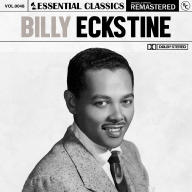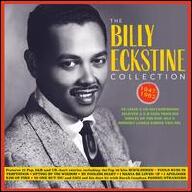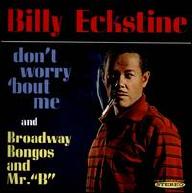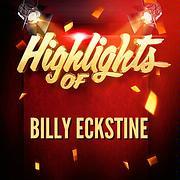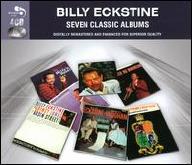Though several of Eckstine's first hits with Hines were novelties like "Jelly, Jelly" and "The Jitney Man," he also recorded several straight-ahead songs, including the hit "Stormy Monday." By 1943, he gained a trio of stellar bandmates -- Dizzy Gillespie, Charlie Parker, and Sarah Vaughan. After forming his own big band that year, he hired all three and gradually recruited still more modernist figures and future stars: Wardell Gray, Dexter Gordon, Miles Davis, Kenny Dorham, Fats Navarro, and Art Blakey, as well as arrangers Tadd Dameron and Gil Fuller. The Billy Eckstine Orchestra was the first bop big-band group, and its leader reflected bop innovations by stretching his vocal harmonics into his normal ballads. Despite the group's modernist slant, Eckstine hit the charts often during the mid-'40s, with Top Ten entries including "A Cottage for Sale" and "Prisoner of Love." On the group's frequent European and American tours, Eckstine also played trumpet, valve trombone, and guitar.
Though he was forced to give up the band in 1947 (Gillespie formed his own bop big band that same year), Eckstine made the transition to string-filled balladry with ease. He recorded more than a dozen hits during the late '40s, including "My Foolish Heart" and "I Apologize." He was also quite popular in Britain, hitting the Top Ten there twice during the '50s -- "No One But You" and "Gigi" -- as well as several duet entries with Sarah Vaughan. Eckstine returned to his jazz roots occasionally as well, recording with Vaughan, Count Basie, and Quincy Jones for separate LPs, and the 1960 live LP No Cover, No Minimum featured him taking a few trumpet solos as well. He recorded several albums for Mercury and Roulette during the early '60s (his son Ed was the president of Mercury), and he appeared on Motown for a few standards albums during the mid-'60s. After recording very sparingly during the '70s, Eckstine made his last recording (Billy Eckstine Sings with Benny Carter) in 1986. He died of a heart attack in 1993. ~ John Bush, Rovi


